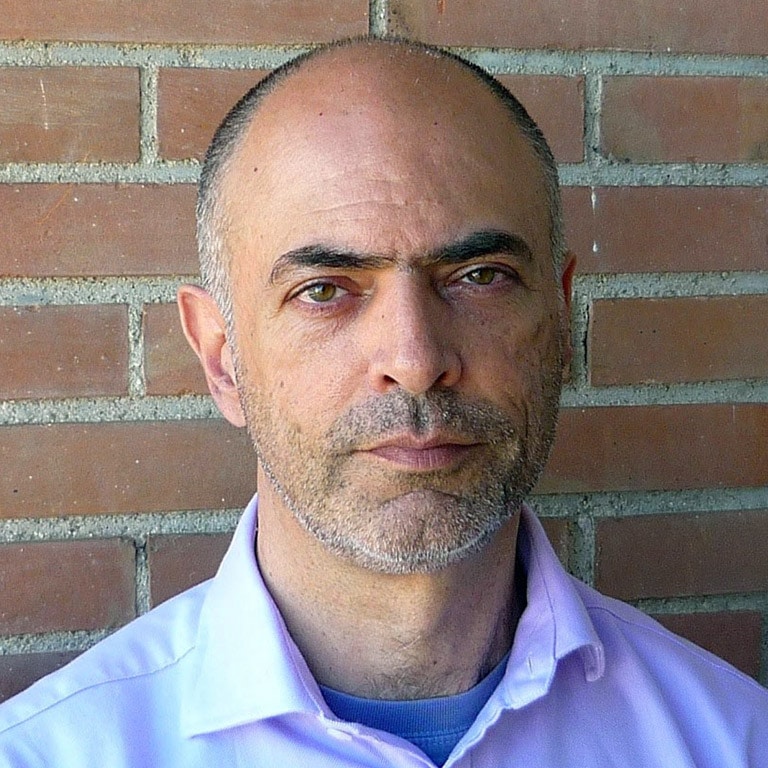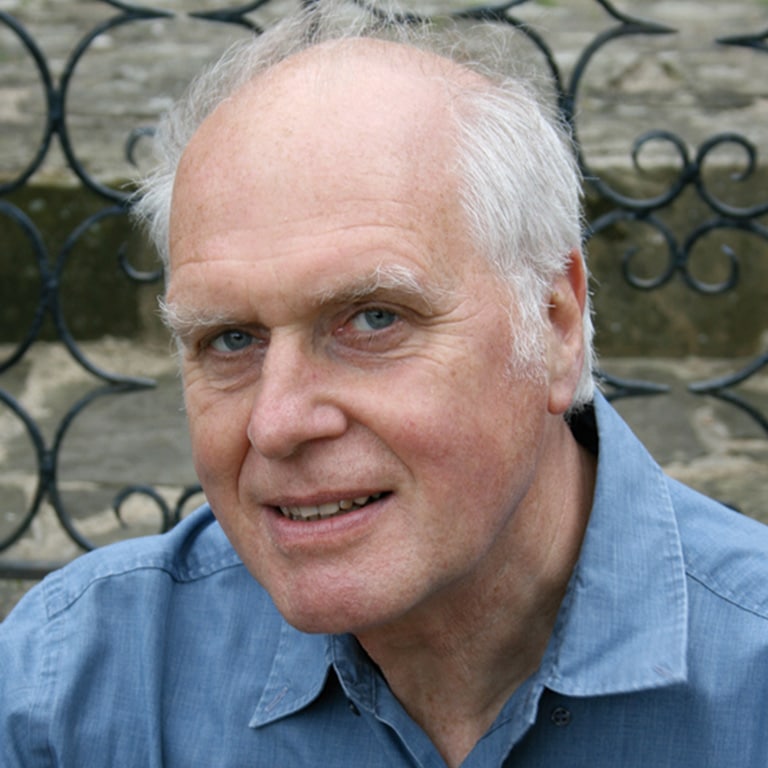How to overcome fear and political chaos
Using the lens of innate human needs to help resolve social and political conflicts, undermine terror agendas and promote peace
Course Factfile
How to overcome fear and political chaos – Delving Deeper
-
Tutors: John Bell, Ivan Tyrrell
-
Suitable for: See below
-
CPD Certificate: 6 hours
Special offer
- Price: £129 £99 per person
Price includes CPD Certificate and life-long access
Original price was: £129.00.£99.00Current price is: £99.00.
The world is becoming an increasingly unstable and dangerous place. More than ever before, anyone trying to tackle society’s problems, or help the traumatised victims of corruption and war, needs a greater understanding of the fundamental unit of society – the human being.
There is a lot here that can be unpacked further... concepts that can be useful in the conflict resolution field. The whole thing about how to manage emotions in a dialogue process when you’re working in conflict situations, is fundamental. It’s a discussion we need to have.
Roxanna Cristescu, Crisis Management Initiative (Finland)
Why take this course
This unique online course, run in association with The Conciliators Guild, focuses on how to improve politics by involving a greater understanding of psychology in domestic and international relations.
You will gain an increased awareness of what war, terrorism and bullying reveal about the human psyche and an improved ability to see through political and cultural assumptions, by recognising the underlying emotional dynamics driving behaviour.
You will also discover the most accurate explanations available about the root causes of extremism in politics, radicalization, the refugee crisis and the growth of authoritarianism, due to the ease with which mass hypnosis is used throughout the world today.
The Middle East serves as the primary case study – but the implications of the material covered are universal and provide powerful new directions for a way out of the chaos we currently find ourselves in.
The course facilitators are John Bell and Ivan Tyrrell.
I really find this course extremely important for acquiring knowledge of human givens principles and practical tips for how to implement them in my daily life as a diplomat… using the knowledge for improving the policies and the structures in which we work.
Eva Horelova, Policy Officer for Syrian Affairs at the European Union
What will you learn
- an increased awareness of what war, terrorism and bullying reveal about the human psyche
- accurate psychological explanations about the root causes of political extremism, radicalization, social unrest, conflict, the growth of authoritarianism and more
- an understanding of how ISIS and other terrorist groups deliberately set about fulfilling key innate emotional needs to radicalize and recruit young people
- what this shows is missing in our society that makes it easy for them to do this – rectifying this could help prevent radicalisation
- a greater ability to see through political and cultural assumptions, by recognising the underlying emotional dynamics driving behaviour
- why conflicts seem intractable and how they can be addressed
- examples of success in conflict resolution – and the role of women and families
- why we’re all vulnerable to manipulation by the hypnotic conditioning techniques that politicians and the media around the world use today
- deeper insight into the causes of the refugee crisis
- a profound understanding of the essential psychological and emotional needs that have to be addressed on all sides if any real progress is to be made in negotiations
- essential information about the prevalent assumptions in our culture which can hinder policymaking
- greater effectiveness at conflict resolution in any situation
- powerful new directions for improving clear thinking about conflict and politics, and reducing civil unrest
Who is this course suitable for?
- Anyone involved in conflict resolution
- Anyone working to prevent the radicalisation of young people
- Individuals, charities and groups working with and helping refugees
- Anyone concerned about the global rise of terrorism, fanaticism, radicalisation, polarised politics, civil unrest and the suffering of countless refugees
- Diplomats, policy makers and international negotiators
- Anyone interested in the Middle East crisis
- Civil servants, police, legal and other professionals involved in law and politics
- Educators and teachers concerned about radicalisation or the clash of faiths
- University tutors and students studying politics and diplomacy
- Anyone worried by the long-term effects of civil unrest and political chaos
What’s included?
-
9 Videos -
16 Quizzes -
Life-long access -
CPD Certificate
Why we need a new direction…
Waves of unease are sweeping the world. Our political life is reeling. The rise of ISIS, intractable disputes like the civil war in Syria, the Israel-Palestine conflict, the Turkish Kurd war and the looming dangers from Africa, America, Asia and the Far East are volcanic and affecting us all.
But we are so conditioned that we resort to the same old habits to address these matters: exerting financial or military power; exhibiting paranoia towards outsiders or adopting technological solutions as if they were panaceas. However, experience tells us, with our track record of political failure in peace making and fighting corruption, that we are most likely looking in the wrong direction…
Hope over despair
The reason dire problems remain unresolved and continue to grow more complex is because we are not directing our attention to the main cause they arise from: the ignorance and mismanagement of basic human needs in society – especially those related to our natural emotional states.
Changing economics, political structures or power balances will not curb the cruel violence or spread of terrorist actions whilst the people operating in those systems remain greedy, needy, and opportunistic.
To find workable solutions we urgently need to take into account what lies behind our political and social problems – our innate human motivations and needs. To think otherwise is a tragic misdiagnosis.
This course is dedicated to developing a process of long-term education about how to improve politics by involving greater psychological understanding in domestic and international relations – the only source of hope for the future.
We invite you to participate in this endeavour.

Course format
This course derives from a workshop presented by The Conciliators Guild and Human Givens College in Westminster, London.
The attendees came from 13 countries and included diplomats, civil servants and conflict negotiators, plus practitioners of the HG approach working in education and psychotherapy.
This online version is split into four modules which are broken down further into different sections containing films of the lectures given in English by the facilitators, John Bell and Ivan Tyrrell along with questions from the audience and contributions from attendees.
Each film is followed by a short series of multiple choice questions which are designed to help you absorb and think about the material and ideas covered.
Share this course
I can attest to the ‘Human Givens’ approach. Unless the ‘givens’ are listened to and respected, you cannot truly help others… this approach is universally applicable.
James Larocco, former Head of Multinational Forces of Observers, Sinai, and former American Ambassador to Kuwait
I do conflict resolution work mainly in the Middle East and Asia. This [course] has given me an additional dimension that I didn’t previously have. I've certainly found it useful – it's given me insights and obliged me to open up my mind to things I hadn't previously anticipated. It’s given me a new framework to think through complex problems.
Andrew Whitley, The Elders' Policy and Advocacy Director, formally of the UN
This course was steeped in psychological insights that could profoundly benefit humankind – if only they were more widely understood and acted upon. A brilliant course.
M. Gibson







While extremely interesting, and very well presented by intelligent people, this course should be viewed from the point that this it was filmed over a decade ago, and that a fresh presentation should be considered.
The course attempts to align the HG psychological approach with a political observation that chiefly focuses on the troubles endured in the Middle East. Sadly, in its efforts to demonstrate the disparity of thought processes amongst different groups of people, the course neglects to shine a light on western political issues (apart from a few key individuals being mentioned), and the need for the HG approach within its framework.
As with any psychological course that touches upon the political landscape, in order to expand my learning on the subject, I needed to come to an agreement with myself to ‘agree to disagree’ with some of the points being put forward. In true HG fashion, I needed to become aware of my ‘observing self’ and to look at the subject from an ‘overall’, rather than a focused view. The reason being, that some personal opinions were expressed by the presenters which didn’t necessarily align with my own.
During the presentation, it was highlighted several times, that a course of this nature (covering the subject of the political landscape of the world, in particular the Middle East and western involvement), deserved a much more in-depth discussion. A point upon which I agreed.
Given the brevity of the course, it was able to touch upon how HG methodolgy could align with aspects of the political situation of (a) whole countries, as well as (b) at the county level in, for instance, a British society. In this vein, a couple of interesting questions were posed by a students, highlighting this idea (that western values and ideas wouldn’t necessarily align with those of Middle Eastern ways of being). The core idea of the course appeared to be in the basic givens of human nature (the human givens finding and satisfying the missing emotional needs) appealing across cultures.
Summary: Ultra interesting approach – to align political viewpoints with the Human Givens methodology. The topics covered gave me inspiration for diving deeper into learning more about it. However, this course would benefit from an update, as it was presented in 2014.
I agree with the statement made a few times during the presentation ‘one day is far to short’ A really insightful short presentation that helps take HG training beyond what may be perceived as a narrow field of psychotherapy and counselling, into a broader context; but also into wider applications.
A short quotation from Faith Based Diplomacy, Trumping Realpolitik (2003) Douglas Johnston p91.Makes one realise that we are very slow in seeing and changing
“The situation in Palestine and Israel is deadly, dangerous and tragic. The lost opportunities of the peace process are too numerous to calculate. However, the single greatest failing has been the all-but-total neglect oh human needs on all sides, whether among the millions of poor Palestinians, the isolated settlers, the angry and confused religious visionaries, the missguided and desperate teenagers and the average person Jew – or Arab- who lives in fear of the violence at his or her door step”
Here we are 17 years after the publication of this book, now waking up to the wonderful truth of THE HUMAN GIVENS,” the human needs on all sides”.
My hope is that this small seed bears great fruit in a wider context within the ongoing peace talks in the Middle East . I would hope that we continue in our relationship with the presenters of this course and in some way influence change. I leave a response to the comment from Andrew at the end of the presentation.He said, “We need to make sure the right people are at the table”
Who is it that selects ‘the right people’? who are they?’ Is it possible we have not looked and listened more?
Thank you for a thought provoking session that can be scaled down and injected into smaller local programmes also.
Excellent, stretches your mind, very useful, clear, provides a practical framework to work with. I enjoyed it. It leaves me thinking. Thank you. My rating: five stars.
I’m glad I took the time to watch this course, the content is far-reaching and incredibly helpful – the tutors display so much knowledge and psychological understanding – this is how we need to look at the complex problems we’re facing at home and abroad if we are to find workable solutions. The clarity that the human givens framework brings to conflicts and all human interactions is profound – more people need to know about this – and then it – before it’s too late. I will be spreading the word!